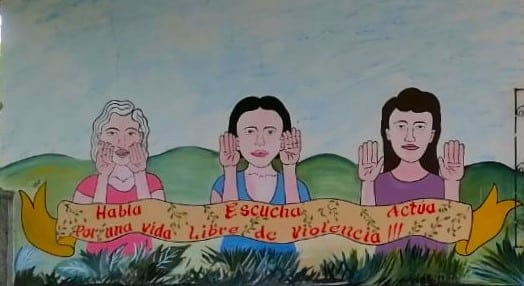The number of victims of human trafficking is high. According to the United Nations Office on Drugs and Crime (UNODC), around 50,000 victims of trafficking were identified and reported worldwide in 2018. 50% of these crimes were committed for the purpose of sexual exploitation, while 38% for forced labour. In cases of sexual exploitation, nine out of ten victims (92%) are women and girls.
Today, 18 October, is the European Day against Trafficking in Persons, a day that represents a new opportunity to continue denouncing the situation of violation of Human Rights in which the victims of this crime find themselves.
Last year, Cáritas accompanied 3,312 women through various programs where specialized assistance is provided in contexts of prostitution, sexual exploitation and trafficking for sexual exploitation. Of this total, 1,762 women were contacted through visits to places of prostitution, while 1,550 were assisted in one of our specialized assistance centres.
The number of women in which a situation of sexual exploitation was detected was 529. “The number is lower than in the previous year. We believe that not only the lower number of visits to places where women practice prostitution has had an influence, but also the difficulties in detecting signs of sexual exploitation ”, she explains. Paul Noeliahead of programs for women, prostitution and trafficking of Cáritas Española.
According to the data collected by our Organization, 301 women showed signs of trafficking for the purpose of sexual exploitation (9% of the accompanied women), of which 74 women (2.2%) were formally identified by the Forces and Police Bodies. . “The data indicate for another year the need to implement a new identification mechanism that allows better detection and identification, and therefore protection of the victims,” De Pablo underlines.
great difficulties
Cáritas’ long history of work in this field of social exclusion allows us to bear witness to the difficulties women encounter in getting out of the situation they find themselves in. Among these we highlight:
The high percentage of women of foreign origin. The reality of migratory flows demonstrates how women suffer different types of violence in their country of origin. “Added to this is the lack of opportunities here and there, as well as deceptions and promises that do not correspond to the reality of what they find when they arrive in our country,” says De Pablo.
Almost all of these women have family responsibilities. In most cases, the main reason for the migration process that these women experience is the search for opportunities for themselves and their children. In some cases, the children they care for are in Spain and, in others, they have to be cared for in their country of origin.
The stigma of the context of prostitution. This reality conditions women due to the possibility of being rejected by their family and community. “This involves a strong psychological and physical impact that manifests itself in isolation, insecurity, fears and phobias, guilt, emotional dependence, destruction of one’s identity and processes of learned helplessness. In a high percentage of them this translates into post-traumatic stress disorder”, indicates De Pablo.
Increase in the exercise of prostitution in apartments. As in previous years, the closure of the premises has increased the movement of women into the apartments. “This makes it less and less accessible to social entities, which makes our work difficult,” says De Pablo.
All these situations, added to the irregular administrative situation in which many women find themselves, lead to a serious violation of rights, such as access to aid, work, health or housing, among others.
To these difficulties we must also add the use and abuse of new technologies. In recent years, human trafficking networks have adapted to new dynamics and use new technologies as forms of recruitment, in addition to the fact that sexual exploitation through the Internet is more common (video calls, live sessions, etc.).
Faced with this reality, the approval of a Comprehensive Law against Trafficking is increasingly urgent, as the Spanish Network Against Trafficking in Persons (RECTP), of which Cáritas is a collaborator, has been requesting for years.
Such a law, with an adequate budgetary allocation, should incorporate issues such as:
1. Address all forms of trafficking for different forms of exploitation (sexual, labour, forced begging, forced crime, forced marriage, etc.) from a human rights, gender and child perspective. It also needs to have a clear and committed budget allocation.
2. Have the rank of Organic Law, consolidating the progress made in this area in recent years and providing a stable framework of obligations, giving coherence to the current legal system.
3. Creation of a state coordination body with a permanent commission and a multidisciplinary technical team which deals, among other things, with the victim identification process. Two types of identification would be established: provisional identification and formal identification.
4. Attention and protection of victims from an integral dimension.
Caritas, in line with the message of Pope Francis, on the occasion of the last World Day of Prayer and Reflection against Trafficking in Persons, recalls that “trafficking in persons is violence” and invites all of society to combat “all forms of exploitation “.


